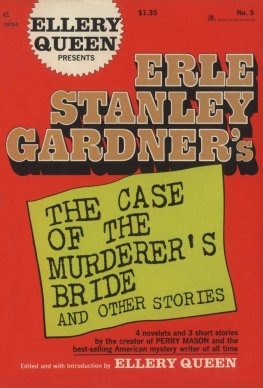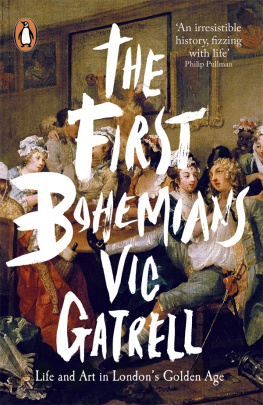Ashley Gardner - A Covent Garden Mystery
Here you can read online Ashley Gardner - A Covent Garden Mystery full text of the book (entire story) in english for free. Download pdf and epub, get meaning, cover and reviews about this ebook. genre: Detective and thriller. Description of the work, (preface) as well as reviews are available. Best literature library LitArk.com created for fans of good reading and offers a wide selection of genres:
Romance novel
Science fiction
Adventure
Detective
Science
History
Home and family
Prose
Art
Politics
Computer
Non-fiction
Religion
Business
Children
Humor
Choose a favorite category and find really read worthwhile books. Enjoy immersion in the world of imagination, feel the emotions of the characters or learn something new for yourself, make an fascinating discovery.

- Book:A Covent Garden Mystery
- Author:
- Genre:
- Rating:5 / 5
- Favourites:Add to favourites
- Your mark:
- 100
- 1
- 2
- 3
- 4
- 5
A Covent Garden Mystery: summary, description and annotation
We offer to read an annotation, description, summary or preface (depends on what the author of the book "A Covent Garden Mystery" wrote himself). If you haven't found the necessary information about the book — write in the comments, we will try to find it.
A Covent Garden Mystery — read online for free the complete book (whole text) full work
Below is the text of the book, divided by pages. System saving the place of the last page read, allows you to conveniently read the book "A Covent Garden Mystery" online for free, without having to search again every time where you left off. Put a bookmark, and you can go to the page where you finished reading at any time.
Font size:
Interval:
Bookmark:
Ashley Gardner
A Covent Garden Mystery
Chapter One
June 1817
The young woman buying peaches in Covent Garden in the early morning had honey brown hair under a small bonnet, clear white skin, deep brown eyes, and a faint French accent. The stall owner was trying to cheat her.
"Ha'penny for two, miss," the stall owner, a stooped man with a fat red nose and strands of greasy hair under a cap, said. "Best to be had."
He was goading her to take two shriveled specimens. When she pointed to the firm, ripe fruit near the man's hand, he shook his head. "Penny apiece for those, love."
I'd just seen him sell two fine peaches to a housewife for half that price, but he probably thought he could fleece a foreigner, especially an inexperienced girl.
I turned to the peachseller's stall, walking stick in hand. A lady in distress, even over peaches, spoke to my knight-errant instincts.
"Prices have changed, have they?" I asked the peach seller.
He shot me an irritated look. "They do, Cap'n."
"In a quarter of an hour?" I leaned to him. "Sell her the same as you sold the others."
The peach seller glowered at me, a glint in his eye, but he backed down. I had the reputation for a foul temper, although I believe my acquaintanceship with magistrates and Bow Street Runners decided the matter.
He handed the good peaches to the girl. "Ha'penny," he muttered. To me, he said, "I know why your nose is so long, Cap'n. You use it to poke into business 'tisn't yours."
"True." I touched the offending appendage. "Several men have broken it for me."
"Shouldn't wonder." He took the girl's coin then, with another bellicose look at me, turned to his next customer. "Two for ha'penny."
The girl placed the peaches in the basket on her arm and glanced at me shyly. "I thank you, sir."
I had not seen the young woman in Covent Garden before. Her dress was well made, high-waisted and plain-skirted, the gown of a young, gently born miss. She seemed more suited to strolling formal gardens with smitten young men than roaming Covent Garden shopping for peaches.
Though she spoke English well, her voice held definite French overtones. Perhaps she was an Englishman's paramour, brought home with him from Paris. Or the daughter of emigres who had fled France long ago and elected to stay in England, even after Louis Bourbon had been restored to his throne.
Whoever she was, she smiled at me, grateful for rescue. Her expression was guileless-too innocent to be a man's paramour, I decided. She possessed an unworldly air that spoke of a simple life. She must be a dutiful daughter, gathering breakfast for her mother or father.
I tipped my hat to her. "Captain Gabriel Lacey, at your service. May I escort you somewhere?"
Her smile was crooked, and her brown eyes sparkled with good humor. "My father and mother are staying near, sir. I wanted peaches this morning, and so ventured to find them."
That they'd let her come out alone to the markets in Covent Garden did not speak well for them. But perhaps they were provincial people, used to places where everyone knew everyone, where no one would dream of harming the daughters of respectable gentlefolk.
The girl stirred a protective instinct in me. I held out my arm. "Which house? I will walk you there."
She blushed and shook her head. "You are kind, sir, but I must not trouble you."
She thought me forward. At least she was that wise, but anyone in the market could have told her she had nothing to fear from me.
"You can introduce me to your mama and papa," I began, but a shrill voice cut across the market, a startled cry in French.
My young lady turned, and her smile broadened into one of relief. "That is my mama now, sir. I thank you again for your kind assistance."
I barely heard her. Hurrying toward me, through the milling housewives and maids, footmen, carters, and cook's assistants making their morning rounds, came a ghost from my past.
The last time I'd seen her, she'd been thin and frail, a golden-and-white girl looking at me with timid eyes, her dainty mouth shifting between smiles and puckered worry. Her face was still pale and flowerlike, though lines now feathered about her eyes and mouth, and her skin had coarsened a bit. The curls that wreathed her forehead, under her bonnet's brim, were still golden, perhaps a little darker than they'd been fifteen years ago. Time had thickened her figure, but she retained an air of graceful helplessness, one that urged a gentleman to rush to her side and demand to know how he could assist her.
That air had ensnared me as a young man. I had proposed to her within a week of meeting her.
The woman stopped a few feet behind the girl, her lips parting in shock. Though I must have changed a great deal from the unruly and impetuous young man I'd been, she knew me, and I knew her.
Her name was Carlotta Lacey, and she was my wife.
Carlotta's eyes were blue. When I'd proposed in a country meadow near Cambridge, those eyes had glowed with excitement and delight. She'd let me kiss her, and then, full of confidence in our future, we'd consummated our betrothal there on the somewhat damp ground. I remembered the sweet scent of crushed grass, the tiny star flowers that tickled my nose, the warm taste of her skin.
Whether she remembered any of it as we stood closer than we'd stood to each other in fifteen years, I could not tell. I only knew that she looked at me with unblinking eyes, and that she'd deserted me for a French officer a decade and a half ago.
Carlotta recovered first. She closed gloved fingers around the girl's basket, and said in French, "Come away, Gabriella."
The word struck me like a boulder thrown with great force. My gaze shot to the girl, the breath leaving my body.
The young woman looked back at me, her brown eyes innocent and uncomprehending, and the same shade as my own.
Gabriella Lacey. My daughter.
"No." The word burst from my tight throat. I stepped around of Carlotta, blocking her way.
Gabriella looked startled. Carlotta moved her grip to the girl's arm. "Later," she said to me. "Not now. We will come to it later."
She had not changed in one respect. Anything Carlotta could avoid facing, she would shove away from her with force.
I had recovered from the grief of her leaving me. I had lived through the anger and loneliness and resignation. I could forgive Carlotta for deserting me, because I had made her miserable. But I had never forgiven her, nor would I ever forgive her, for taking away my daughter. I had not seen Gabriella since she was two years old.
I said, "By the laws of England, she belongs to me."
Mothers had no legal guardianship over their children unless they were granted it, which I had not done. Carlotta taking Gabriella away had been a crime in truth.
The worry in Carlotta's eyes told me she knew very well what she had done, and what I could do to retaliate. She looked at me pleadingly. "We must speak of it later. Not here. Not now. "
" Maman, what is the matter?" Gabriella asked in French. "What is happening?"
Carlotta arranged her face in soothing lines. "Nothing, my dear," she answered, her tone too bright. "We will go home."
I pressed my walking stick against the side of Carlotta's skirt. She could not rush away, her favorite method of solving problems, without pushing past me and making a scene. Gabriella peered at me anxiously. She no doubt thought me a madman, accosting her mother for whatever diabolical reason was in my crazed mind.
I realized then that when I had said to her, Captain Gabriel Lacey, at your service, Gabriella had given no beat of recognition. She had no idea who I was.
"You did not tell her," I said to Carlotta.
"Not now," Carlotta repeated. "Please, Gabriel, let us speak of this later. For heaven's sake."
Font size:
Interval:
Bookmark:
Similar books «A Covent Garden Mystery»
Look at similar books to A Covent Garden Mystery. We have selected literature similar in name and meaning in the hope of providing readers with more options to find new, interesting, not yet read works.
Discussion, reviews of the book A Covent Garden Mystery and just readers' own opinions. Leave your comments, write what you think about the work, its meaning or the main characters. Specify what exactly you liked and what you didn't like, and why you think so.




![Lyn Gardner [Lyn Gardner] - Rose Campion and the Christmas Mystery](/uploads/posts/book/141372/thumbs/lyn-gardner-lyn-gardner-rose-campion-and-the.jpg)